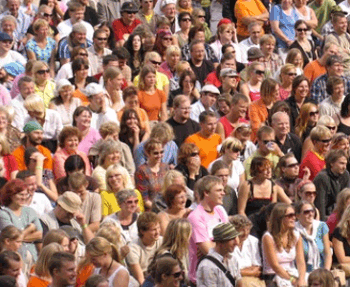by Ac. Krtashivananda Avt.
 ‘Having’ and ‘being’ are two fundamental modes of experience, the respective strenghts of which determine the difference between character of individuals and various types of social character.
‘Having’ and ‘being’ are two fundamental modes of experience, the respective strenghts of which determine the difference between character of individuals and various types of social character.
In the present period of crisis, two ways of existance are struggling for the spirit of humankind. First – and dominant in modern industrial society can be called the ‘having’ mode, which concentrates on material possessions and power within and is based on greed, envy and agressiveness. The second-and the alternative way is what can be called the ‘being’ mode, which manifests itself in the pleasure of shared experience and truly productive rather than wasteful activity, and is rooted in love and ascendency of human over material values.
- The dynamics of ideas runs parallel to the process of social evolution, the two influencing each other mutually.
In no particular point of the process human evolution, can a direct causal relation be established between historical events and the movement of ideas. (“idea” is here used in the common philosophical sense of ideology or systems of ideas.) Cultural patterns and ethical values are not mere ideological superstructures of established economic relations, but historically determined—by the logic of the history of ideas that evolved from inner spirit.
Experience drove us to examine current ideas and cherised ideals critically and reject the stereotyped values that is deduced from mechanistic cosmology of materialism. Then to put effort to evolve new ideas and ideals, based on new humanistic ideology as guide and inspiration for the future.
- A social renaissance can come only through the endevour to educate the people as regards the principles of freedom and rational cooperative living.
Social revolution requires, in rapidly increasing number of men of the new renaissance and progressively expanding system of peoples committees and an organic coordination of both. The programme of revolution will similarly based on the principle of freedom, reason, security for all and social harmony. It will mean elimination of every form of monopoly and unethical authoritive control in the regulation of every strata of social, religious and political life. Simultaneosly, economic liberation of the masses from monopoly control is an essential condition for their advancing towards the goal of freedom. To achieve this the masses need to be educated to make them conscious of their rights and duties both in individual and collective sense.
- New Humanism advocates reconstruction of the world as a commonwealth and fretarnity of free men(sic), by the spiritually emancipated moral men(sic):
Moral sanction , after all, is the greatest sanction. The gurantee of democracy is not law but the moral conscience of the majority in power. Dictatorship may also claim to have a moral sanction. But group morality is a doubtful guarantee against the temptation of power. Values operate through individuals. Therefore, a government composed of spiritualy free individuals, accountable in the first place, to their respective conscience, is the only possible gurantee for greatest good to the greatest number. Democracy must have that philosophical reorientation if it is to survive the present crisis the power onslaught of dictatorship and bureaucratic character.
Democracy can only be successful when residuary power is vested in a council of state representing men(sic) of science, intelligence, integrity, wisdom and moral excellence; men who as a rule, keep aloof from rough and tumble of politics and therefore not be found among professional politicians.
